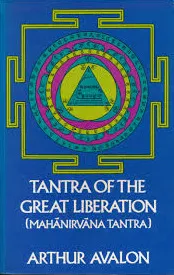Tantra of the Great Liberation
By (author): "John George Woodroffe, Arthur Avalon"
Publish Date:
1913
ISBN0486201503
ISBN139780486201504
AsinTantra of the Great Liberation
Original titleMahanirvana Tantra of the Great Liberation
For generations the secret documents of the Shaktic cults of India, the hidden books of the Tantric worshipers, have been withheld not only from Westerners, but even from orthodox Hindus. Yet their reputation was enormous—either as pits of the utmost evil, or as remarkable stores of psychological wisdom. It fell to the good fortune of Aurther Avalon (pseudonym of Sir John Woodroffe, eminent jurist and Tagore Professor at the University fo Calcutta) to be able to study them withe the few savants who understood them, penetrate their secrets, and translate them into English. Among the most important of these tantras is the Tantra of the Great Liberation (Mah?nirv?na Tantra).The Mah?nirv?na Tantra is essentially a series of conversations between the great god Shiva and his Shakti, or consort-energy. Shiva gives instructions for meditation exercises and mental projections that must be made; yogic exercises of an individual sort; mantras for concentration and mind-training; ceremonies of shaktic worship; physiological information on the system of chakras or nerve-centers; and the role of tantrism in life. All this is authoritative.Avalon has translated the extraordinarily difficult Sanskrit into clear English, and has supplied exhaustive footnotes to explain the deliberately cryptic text. He has also contributed an introduction of more than 130 pages explaining the anatomy of the chakras, various forms of yantra and mandala, and the siddhis: the highest of all being liberation and union with the Paramatma.For the Indologist this work is of obvious interest as a highly important text in an exotic branch of modern Hinduism; for students of Tantric Buddhism, the tantra of Tibet and Nepal, it is equally important. It is especially valuable to the modern, non-specialist reader who is existentially concerned with the secret and profound self-recognition and development techniques of the Orient.Unabridged reprint of original 1913 edition.
